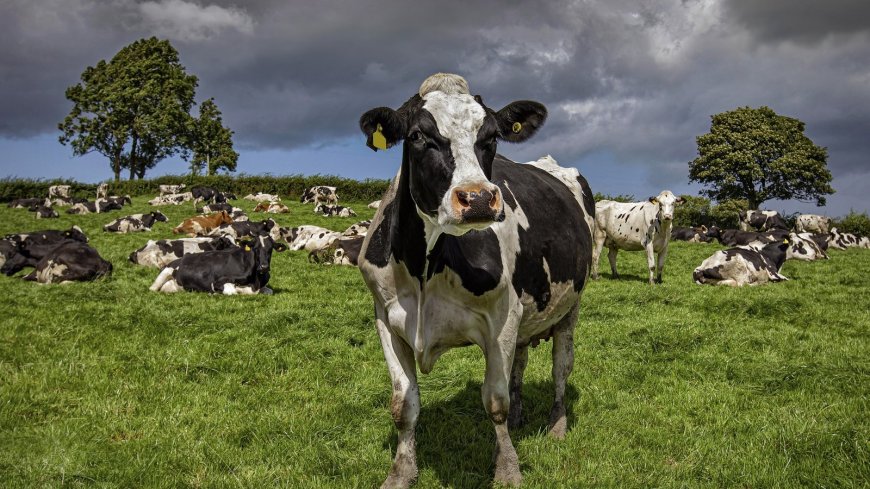Proposed Changes to CAP: Impact on Irish Farmers Explained
The European Commission is considering significant changes to the Common Agricultural Policy (CAP) that could affect Irish farmers. The proposal aims to merge CAP with other EU funds, potentially reshaping financial support for agriculture. Irish farmers currently benefit from CAP payments to sustain the rural economy and food production. The draft plan also includes increased support for younger farmers. The reaction in Ireland has been mixed, with concerns raised about the impact on food prices and the importance of CAP to the agriculture sector.

EU financial supports for farmers could be radically overhauled under a draft proposal from the European Commission. Documents seen by RTÉ News show the Commission plans to pool its Common Agricultural Policy (CAP) into a single National and Regional Partnerships fund from the start of the next EU budgetary cycle in 2028. Here we look at what the changes will mean for Irish and other EU farmers.
What is the Common Agricultural Policy?
The policy was introduced in 1962 and sought to provide affordable food and a fair standard of living for farmers in the then-European Economic Community. Its main aims are to support farmer incomes, ensure food security, protect the environment and rural development across the European Union. It is a significant part of the EU budget, amounting to nearly €400bn, which is around one-third of the entire budget. There are around 7 million beneficiaries of CAP payments across the EU.
How do Irish farmers benefit from CAP?
Irish farmers receive around €2 billion annually in CAP payments to help support the rural economy and food production, with around 120,000 farmers receiving payments. Farmers receive funding through CAP in different ways, including direct payments and through specific projects with environmental or production goals that offer financial rewards for achieving them. Projects under Ireland's CAP Strategic Plan include the Agri-Climate Rural Environment Scheme (ACRES) and the LEADER Programme, which funds enterprise development. ACRES has a fund of €1.5 billion to help address biodiversity decline on farms, focusing on things like planting new hedgerows, native trees, and protecting watercourses. Over 50,000 farmers signed up for the scheme since it began in 2023. CAP payments are seen as crucial for the Irish agriculture sector as they help ensure family-run farms are viable.
So what are the proposed changes?
The proposal would mean CAP would no longer be a stand-alone fund within the EU budget from 2028 and would instead be merged with EU cohesion, migration and infrastructure funding. This could result in certain funding for agriculture within the EU budget no longer being ringfenced and see financial supports funnelled away from farming and into other areas. The Commission says the funding merger will create \"stronger synergies between policies\". It says it will create a more flexible, crisis-responsive budget that better reflects the EU's shared priorities and reduce bureaucracy. Under the current system, CAP funding is divided into two pillars, direct payments to farmers and projects for rural development. However, the draft Commission document proposes to guarantee \"coherence by integrating the CAP interventions from the current two-funds structure under one single umbrella\". The proposal suggests member states would have more power to reallocate funding \"based on their specific needs rather than uniform allocations\". The Commission's plans also recommend CAP funding \"should be focused on active farmers\", meaning supports would be \"targeted towards farmers who exercise agriculture as a principal activity\". In addition, the proposals would increase supports for younger farmers significantly, with funding for the costs of establishing a new farm potentially rising from €100,000 to €300,000.
What has been the reaction in Ireland?
\"Very concerning\" is how the Irish Farmers' Association described the draft proposals. IFA President Francie Gorman said the Commission is \"downgrading the importance of the CAP\" and said it is being turned into an environmental and social policy. He described CAP as the cornerstone of the Irish agriculture sector. The group that represents dairy farmers is warning that the changes could \"have an immediate inflationary effect on food prices\". ICMSA President Denis Drennan said: \"Any merging of the CAP pillars as a pretext towards further reduction in already inadequate direct payments to farmer primary-producers will have an immediate inflationary effect on the costs of food.\" \"It's utterly bizarre – in light of the anxiety being cause by rising food prices – for the Commission to consider cutting the very payments to farmers that were at least going some small way to preventing the full cost of food production being borne by consumers,\" he added. While Minister for Agriculture Martin Heydon said that the proposals are \"just the beginning of a protracted process\". Mr Heydon said member states will start the process of agreeing on a \"general approach\" to the proposals and will take part in \"line-by-line negotiations\" with the EU Parliament and the EU Commission. He said his priority during the process will be to \"ensure that the legislation finally agreed reflects Ireland's concerns, and provides certainty and stability for farmers\".
What's Your Reaction?
 Like
0
Like
0
 Dislike
0
Dislike
0
 Love
0
Love
0
 Funny
0
Funny
0
 Angry
0
Angry
0
 Sad
0
Sad
0
 Wow
0
Wow
0



















































































































































































